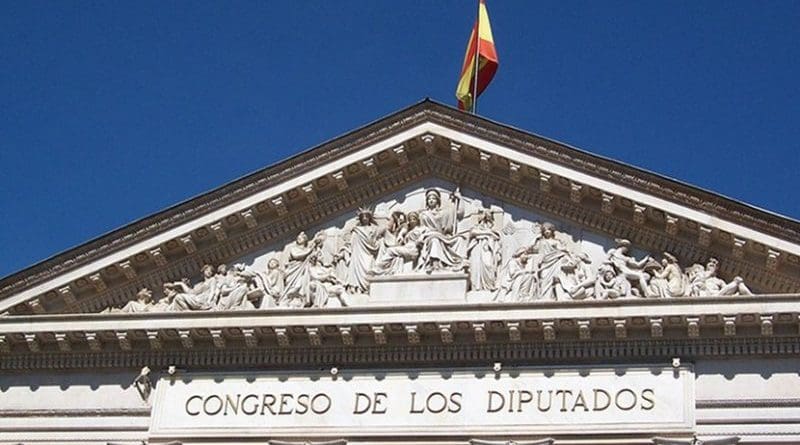Spain: Parliament To Hold First-Ever Fully Multilingual Session
By EurActiv
By Fernando Heller
(EurActiv) — The Spanish parliament will hold its first fully multilingual session on Tuesday, with interpreters for Catalan, Basque, and Galician – one of the non-negotiable ‘red lines’ set by Catalan separatist parties for them to consider negotiations to reinstate Prime Minister Pedro Sánchez.
Half a dozen interpreters are responsible for interpreting the interventions and speeches of deputies from Catalonia, the Basque Country and Galicia into Castilian, which, according to Spain’s Constitution, is the country’s first official language.
According to official Spanish sources, with almost 493 million people, Spanish (or Castilian) is the second most spoken mother tongue in the world and the third most-used language on the web.
From Tuesday, headphones will be distributed to the 350 deputies who want to listen to speeches in their mother tongue by spokesmen and deputies of Catalan separatist parties, including the Republican Left of Catalonia (ERC), Together for Catalonia (J JXCat), the Basque pro-independence parties EH Bildu and PNV, and the Galician nationalists of BNG.
It will also be possible to tune into non-official languages such as Asturian or Aragonese.
Language as a political tool
The recent increase in the use of different languages in the political arena has caused much controversy in Spain.
In Catalonia, however, only 32.4% of the region’s almost eight million inhabitants use Catalan as their regular daily language, according to a 2021 report by the Plataforma per la Llengua, an organisation funded by the regional government – a very worrying downward trend, according to the organisation’s president, Òscar Escuder.
“In the last fifteen years, we have lost half a million habitual speakers, and this, I insist, is a dire statistic. We still have time to reverse it, but it is necessary for citizens and administrations to be aware of the linguistic emergency”, said Escuder in 2021, as quoted by La Razón daily.
Linguistic diversity or political quid pro quo
Parliament’s move to go multilingual follows a pledge made by President Francina Armengol (PSOE/S&D) in August to bring “linguistic diversity” to the chamber, despite criticism from the centre-right Partido Popular (PP/EPP), the main opposition force, and the far-right VOX party, the third largest in the chamber.
A proposal to reform parliament’s Rules of Procedure will be definitively approved this week so that the use of Spain’s co-official languages in plenary sessions, committees, written documents and all parliamentary procedures will be formally introduced.
The use of Catalan, and Spain’s other co-official languages, was one of the ‘red lines’ set by JXCat leader Carles Puigdemont, the leader of Catalonia’s failed secession bid, to begin negotiations for a new inauguration of Sánchez.
In addition to an amnesty law for those involved in the 2017 events and a referendum on Catalonia’s self-determination, Puigdemont, a former president of the prosperous Spanish region, wants Madrid to press EU countries to accept the official use of the Catalan language in the EU bloc’s institutions.

